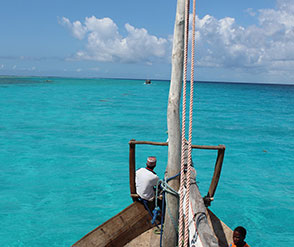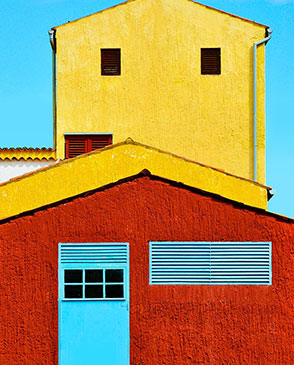
Sauti za Busara
Every February, this 20-year-old African music festival attracts thousands to experience the vibrant sounds of artists from Uganda, Zimbabwe, Congo, Réunion, and South Africa.
as they say in Swahili
Welcome, and not just to anywhere... to Zanzibar!
Zanzibar is a small archipelago in the Indian Ocean made up of two main islands, Unguja and Pemba, as well as other smaller islands. Unguja (the largest and most populated island) is commonly referred to as Zanzibar.
Zanzibar is life in slow motion. Here, stress melts away. You can relax on the beach. The smells of rice pilaf, Tangawizi (local ginger tea) and kahawa (grilled, ground and spiced coffee) waft over you. But what we remember most is the kindness and smiles of the people
If you want to get your dose of a great atmosphere and leave with lots of memories in your heart, Zanzibar is waiting for you!
The people of Zanzibar will welcome you with open arms all year round. That said, if you want to make the most of the sunshine, opt for the dry season, from January to February, and between June and October.
Temperatures from January to March are between 25°C and 33°C. In October (the coldest month), temperatures are milder, with an average maximum temperature of 28°C!
The dry season means there has to be a rainy season. And yes, like Mauritius, there are only two seasons. During the rainy season (April to May), temperatures fluctuate between 22°C and 31°C. It doesn't rain every day, but the weather is wetter than the rest of the year. There may also be short-lived showers in November and December.
Although it is true that some hotels take advantage of the rainy season to close for maintenance, tourism does not come to a halt.


Unsurprisingly, the low season, with the lowest visitor numbers, corresponds to the rainy season. During this period, flights and hotels are cheaper.
In the high season, from June to October, prices are more expensive, but the weather is better.
What to do in Zanzibar and where to go
Zanzibar offers the perfect balance between activity and relaxation. You can fill your days with watersports, land excursions and boat trips, or simply enjoy the peace and quiet, the sound of the waves and a refreshing cocktail...
Watersports and beaches
Cultural and historical
Zanzibar and its flavours
Typical drinks
Are you more into snorkelling or diving? Admire the coral reefs in all parts of the island, preferably during the dry season.
And what about an excursion by dhow, a traditional local sailing boat, to moor on nearby islands such as Mnemba or Chumbe? At Chumbe, a protected marine reserve, you can snorkel and hike while learning more about marine conservation!
If you come to Zanzibar, don't miss Stone Town, the capital of the island of Unguja. The town is a UNESCO World Heritage Site, with its Swahili architecture, stone buildings and bustling markets.
It's also the birthplace of Freddy Mercury! You'll find a small museum in his honour, with never-before-seen photos, some of the artist's outfits and handwritten notes.
Finally, for lovers of history and cuisine, one of the most popular excursions is a spice tour. Zanzibar is renowned for its clove cultivation.
Nature lovers won't want to miss the Jozani Forest, a nature reserve that is home to red colobus monkeys, an endemic species of monkey
You can discover the forest on a guided walk. It's a great opportunity to learn more about the ecosystem and to raise awareness of the need to protect both mangroves and forests.
Zanzibar's cuisine is spicy and influenced by Swahili, Arab, Indian and European cultures. And contrary to what you might think, the local cuisine is varied. Fish and street food play an important role.
For a taste of all the specialities, head to Forodhani Gardens, of course! This public park turns into a temple of street food in the evening. Situated on the seafront in the historic district of Stone Town, it's a night market known for being a lively place where locals and tourists meet.
It's an immersion into Zanzibar's culinary culture, where you can enjoy good food and a beautiful sunset.
Wherever you go, you won't want to miss some of the classics, such as:
• Sugarcane juice
• Exotic fresh fruit juices
• Tangawizi, a spicy and slightly sweet ginger tea
• Zanzibarite coffee (kahawa), spiced with cinnamon and cardamom, often served sweetened
